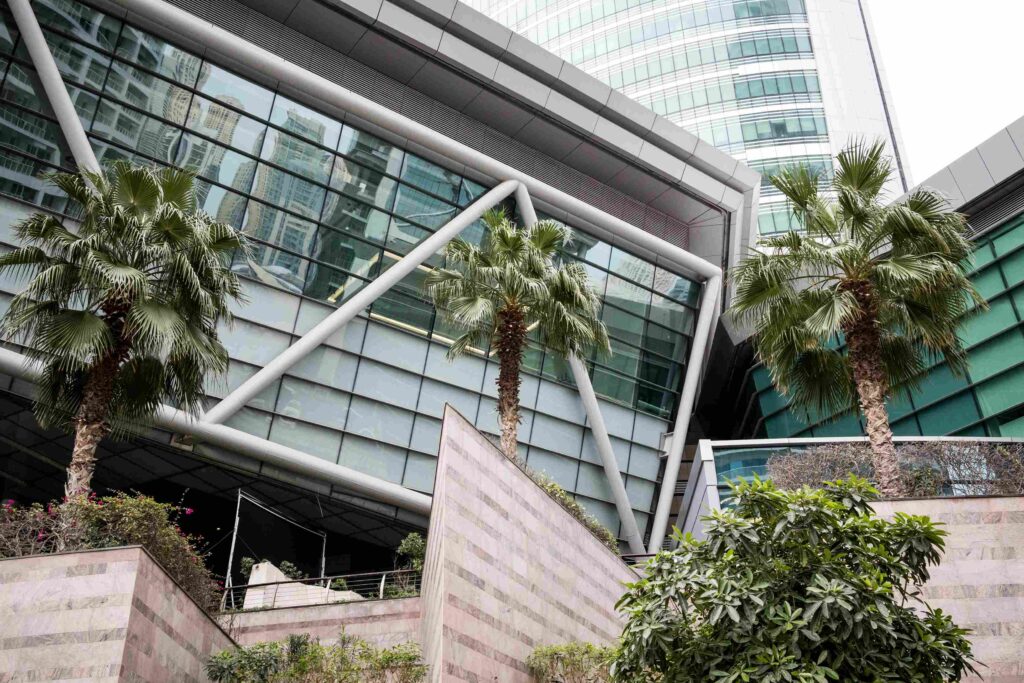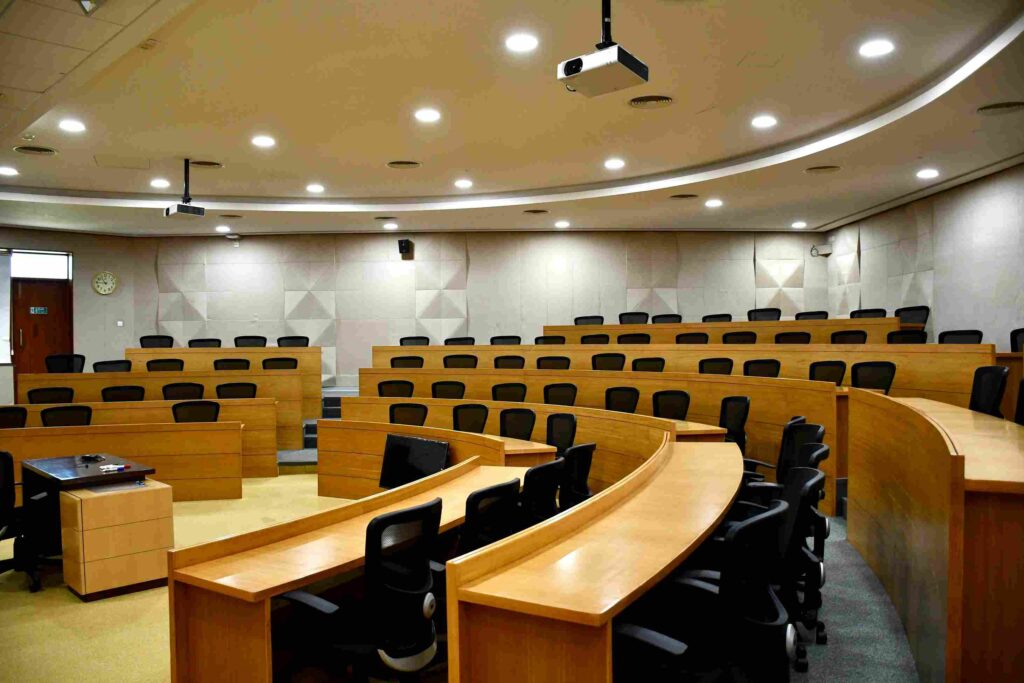Dubai has a special kind of legal system that has two types of courts with different legal systems: the DIFC Court and the Dubai Court. The distinction between the two courts is important to the residents, the expatriates, and the businesses, as it will guide them on which court to file a dispute in and the manner in which the dispute will be resolved. Even though both of them are based in Dubai, their jurisdictions, procedures, and legislations are very different. These differences have been discussed in this article in detail so that individuals and businesses can make informed decisions.
Understanding the Dubai Court System
The Dubai Courts operate in the federal judicial framework of the UAE, and they are governed by civil law and Islamic Sharia principles. They address a broad category of conflicts affecting residents and citizens.
- Jurisdiction: The Dubai court deals with family cases, civil and criminal cases, labor cases, tenancy cases, and commercial cases.
- Language: The whole proceedings are done in Arabic, and documents that are to be issued should also be translated into Arabic.
- Structure: The system of judicial organization of the City of Dubai is founded on the three-level model: the Court of First Instance, the Court of Appeal, and the Dubai High Court (Court of Cassation).
An example is when a family wants to divorce or to make custody arrangements, the case is referred to the Dubai Family Court, a special section of the Dubai Court system. Similarly, the Dubai court follows certain legal procedures to solve a tenancy or labor case.
What Is the DIFC Court?
The Dubai International Financial Centre (DIFC) Court is not part of the Dubai Court system.
The DIFC Court was set up to serve the growing role of Dubai as a business centre in the world, on the basis of common law, resembling England and Wales.
- Jurisdiction: DIFC Courts deal mainly with commercial, financial, and corporate litigation, such as the litigation of cross-border contracts and banking litigation.
- Language: In contrast to the Dubai Courts, the DIFC Court uses the English language in its operations, and that is not complicated for the global firms and expatriates.
- Structure: The DIFC has its Court of First Instance and Court of Appeal, and no cassation-level Court, such as the Dubai Court Dubai system.
The DIFC Court has been established to be impartial, clear, and effective, and this has been even more compelling to most companies in Dubai and even foreign investors.
Key Differences Between The Dubai Court and The DIFC Court
To have a better understanding of the way these courts operate, we may divide their major points of difference.
- Jurisdiction
- Dubai Court: The court handles the cases of the residents, family issues, criminal cases, and labor or tenancy conflicts.
- DIFC Court: It addresses the commercial and cross-border cases of financial issues.
- Legal Framework
- Dubai Court: The court operates under the principles of the UAE Federal Law and the Sharia.
- DIFC Court: Adheres to common law, which is in line with international business practice.
- Language of Proceedings
- Dubai Court: All hearings and documentation must be in Arabic.
- DIFC Court: The official language is English, which helps to engage expatriates and multinational companies.
- Appeal Process
- Dubai Court: A case may be referred to the Court of Appeal upon passing through the Court of First Instance and ultimately be referred to the Dubai High Court (Cassation).
- DIFC Court: The Court of First Instance is only subject to appeal to the DIFC Court of Appeal.
- Types of Cases
- Dubai Court: Family, civil, criminal, tenancy, labor, and general disputes.
- DIFC Court: International trade, financial contracts, corporate issues, and international contract disputes.
Case Examples: When to Use Each Court
- Family Disputes: A family law case, including divorce or child custody, must be submitted in the Dubai Family Court, as DIFC lacks jurisdiction over family law.
- Tenancy Issues: In case of a dispute between a landlord and tenant, the case is to be handled by the Dubai Court in Dubai under the tenancy tribunal.
- Commercial Contracts: In case of breach of contract between two multinationals in Dubai, the DIFC Court is normally taken into consideration, given its international credibility.
- Cross-Border Finance: The dispute that arises between banks or international investors can be taken to the DIFC Court, as it is universally recognized.
Pros and Cons of Each Court
Dubai Court
Pros:
- Handles any kind of case, such as criminal, civil, and family.
- Extensive availability to both residents and businesses.
- Strong enforcement power within the UAE.
Cons:
- Arabic proceedings may be an obstacle to non-speakers.
- Complex cases can be time-consuming in legal processes.
DIFC Court
Pros:
- Internationally recognized judgments.
- English proceedings that are best suited to multinational businesses.
- Efficient handling of commercial cases.
Cons:
- Jurisdiction is limited mainly to commercial disputes.
- Higher costs compared to the Dubai Courts.
Which Court Should You Choose?
The nature of the dispute will determine whether to bring a case in the DIFC Court or the Dubai Court. The Dubai Court will be a relevant authority in case the issue is family, tenancy, labor, or criminal cases. On the other hand, when the conflict is commercial, contractual, or international, the DIFC Court provides a more suitable platform.
It is typical that businesses in Dubai will make a jurisdiction clause in their contracts specifying whether to be resolved by the Dubai Court or the DIFC Court. This assists in avoiding confusion and aligning both parties.
Conclusion
In conclusion, it is necessary to mention that the Dubai Court and DIFC Court are a two-sided justice system that meets the needs of local and global businesses in Dubai. Despite the Dubai Court being the principal body handling family, criminal, and civil litigations, the DIFC court offers an internationally recognized court of dispute in commercial and financial litigations.
In case of court cases in Dubai, it is necessary to consider the appropriate court to promote fairness, efficiency, and enforceability. This can be done by consulting a qualified lawyer who can assist you in choosing between going to the Dubai Courts and DIFC Court and making sure that you do things right the first time.


